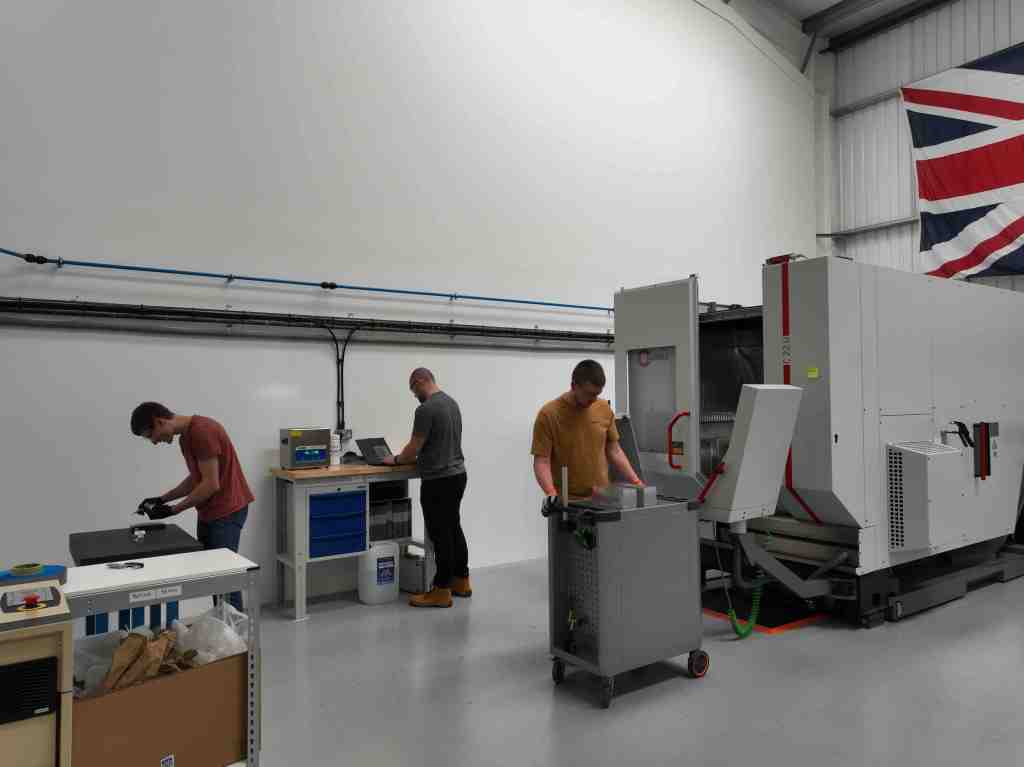In an era where geopolitical tensions and supply chain vulnerabilities have underscored the need for localized production, British startup Isembard has emerged as a beacon of innovation in the manufacturing sector. The company recently secured a £7 million seed funding round (approximately $9 million) led by Notion Capital, with contributions from 201 Ventures, Basis Capital, Forward Fund, Material Ventures, Neverlift Ventures, and NP-Hard Ventures. Notable angel investors, including Andreas Klinger and Joshua Western, also participated in the round.
Addressing the Reshoring Imperative
The global push towards reshoring—bringing manufacturing operations back to domestic soil—has gained momentum due to various factors, including geopolitical uncertainties, rising costs abroad, and the need for more resilient supply chains. However, the transition is fraught with challenges, particularly in precision manufacturing, where many Western nations lack the infrastructure and skilled workforce to meet current production demands.
Isembard aims to bridge this gap by establishing a network of advanced factories across Western locations. The company’s inaugural facility commenced operations in London in January 2025, already fulfilling orders for high-precision components. While specific plans for additional locations remain undisclosed, the company’s vision is clear: to provide a robust alternative to offshore manufacturing by leveraging cutting-edge technology and automation.
Innovative Manufacturing Solutions
At the heart of Isembard’s operations is MasonOS, a proprietary software platform that integrates and manages the company’s manufacturing processes. This centralized system ensures consistency, efficiency, and scalability across all facilities. By automating various aspects of production, Isembard addresses common issues faced by traditional manufacturers, such as fragmented supply chains, outdated equipment, and a dwindling skilled workforce.
The company’s approach is particularly beneficial for businesses that require high-precision parts but may not have the resources to invest in their own manufacturing infrastructure. Clients can submit 3D designs of components, receive rapid quotes, and have their parts machined and delivered promptly. This model not only streamlines the production process but also aligns with the growing demand for localized, resilient, and environmentally friendly supply chains.
Strategic Focus on Critical Industries
Isembard’s initial focus is on sectors where precision and reliability are paramount: aerospace, defense, and energy. While specific client names have not been disclosed, the company reports significant traction within the defense industry and among rapidly growing startups. Discussions are also underway with major defense contractors and government agencies, indicating a strong interest in Isembard’s capabilities.
The company’s strategy is timely, considering the increasing emphasis on national security and the need for domestic production capabilities in critical industries. By offering a viable alternative to offshore manufacturing, Isembard positions itself as a key player in the reshoring movement, contributing to economic growth and job creation in the UK and beyond.
The Broader Context of Reshoring
The trend towards reshoring is not unique to the UK. In the United States, for example, there has been a significant push to bring manufacturing back home. According to the Reshoring Initiative, the U.S. added over 263,000 manufacturing jobs in 2023, marking the second-highest year on record for reshoring and foreign direct investment. This movement is driven by factors such as geopolitical risks, the need for supply chain resilience, and the desire to protect intellectual property.
Similarly, in Europe, companies are increasingly recognizing the benefits of localized production. Shorter supply chains lead to faster production and delivery times, enhanced collaboration between design and manufacturing teams, and improved responsiveness to market changes. Additionally, reshoring initiatives contribute to job creation and economic growth in home countries.
Challenges and Opportunities Ahead
While the benefits of reshoring are clear, the transition is not without challenges. Many Western countries face a shortage of skilled workers in the manufacturing sector, a gap that needs to be addressed through education, training, and investment in workforce development. Moreover, the initial costs of setting up advanced manufacturing facilities can be substantial.
However, companies like Isembard demonstrate that with innovative approaches and strategic investments, these challenges can be overcome. By integrating advanced software solutions, automating processes, and focusing on critical industries, Isembard not only addresses the immediate needs of its clients but also contributes to the broader goal of revitalizing domestic manufacturing.
Looking Forward
As Isembard continues to expand its operations and establish new facilities, its impact on the manufacturing landscape is expected to grow. The company’s success could serve as a model for other startups and established manufacturers looking to navigate the complexities of reshoring. Furthermore, by focusing on critical industries, Isembard plays a vital role in enhancing national security and economic resilience.
In conclusion, Isembard’s recent funding and strategic initiatives highlight a significant shift in the manufacturing sector. By leveraging technology and focusing on critical industries, the company addresses the challenges of reshoring and sets the stage for a more resilient and self-sufficient manufacturing ecosystem.



